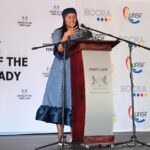The Ministry of Education and Child Welfare has announced plans to extend mother tongue language instruction to institutions of higher learning, in a bid to promote linguistic diversity and improve educational outcomes across the country.
Speaking during the 61st sitting of the Parliamentary Public Accounts Committee on Tuesday morning, Permanent Secretary in the Ministry, Mmamiki Kamanakao, highlighted the Ministry’s ambitions to expand the mother tongue initiative beyond its current scope. At present, only a limited number of schools are benefiting from the programme.
According to Kamanakao, the Ministry is actively working toward a nationwide rollout that will eventually see local languages integrated into the curriculum at colleges, universities, and other tertiary institutions. She emphasized that the use of indigenous languages in education not only fosters a stronger cultural identity but also supports improved comprehension and learning, particularly among young learners transitioning to higher education.
“This programme is not only about preserving our languages, but also about making learning more accessible and relevant to our people,” Kamanakao stated. “We are looking into strategic partnerships and curriculum development that will enable mother tongue instruction at all levels of education.”
The initiative, which was initially introduced in selected primary schools, aims to promote the use of local languages in early childhood education to help children grasp concepts more easily before transitioning to instruction in second languages such as English.
However, the limited reach of the programme has raised concerns, with only a few schools currently implementing the model. The Ministry acknowledges the challenge but remains optimistic about scaling the initiative nationally, given the growing evidence of its effectiveness in early education.
Kamanakao noted that the Ministry is engaging with educational stakeholders, language experts, and curriculum developers to ensure a smooth transition and adaptation of local languages into higher education syllabi.
The push for expanded mother tongue instruction comes at a time when there is increased global recognition of the importance of linguistic inclusion in education. Studies have consistently shown that learners perform better academically when taught in their first language during the early years of schooling.
As the Ministry continues its efforts, there is hope that the broader implementation of mother tongue education will not only boost academic performance but also preserve the rich linguistic heritage of the nation.










